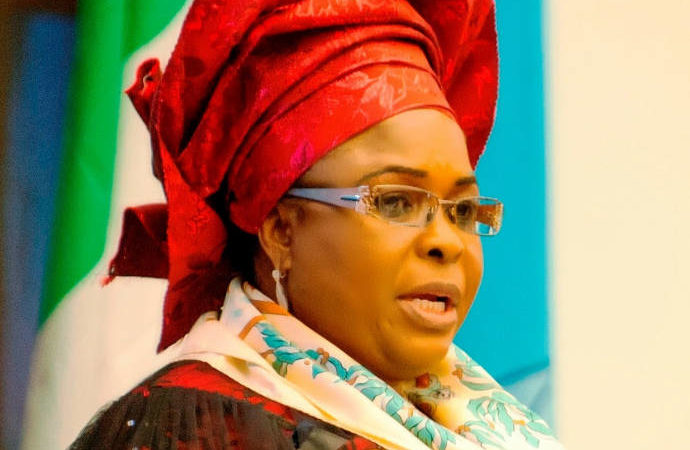- Magu Told UK Not to Give me Visa, Says Patience
Mrs Patience Jonathan, the wife of former President Goodluck Jonathan, said the acting Chairman of the Economic and Financial Crimes Commission, Mr Ibrahim Magu, wrote a letter to the British High Commission in Nigeria, asking the British Government not to issue her with a visa.
Patience said this in a petition written by her lawyers, Granville Abibo (SAN) & Co. which was addressed to the Speaker of the House of Representatives, Mr Yakubu Dogara.
Patience said the British Government subsequently investigated her and found her not wanting and thereafter issued her with a visa.
The petition, which was signed by G.I. Abibo (SAN), read in part, “In February 2017, the EFCC through its acting Chairman, Mr Ibrahim Magu, made a spurious report against our client to the United Kingdom authorities and other international bodies – all in a grand design to forestall the renewal of her visa and other travel documents.
“The allegations against our client by the EFCC were duly investigated by the UK authorities and other international bodies who found the reports baseless and thereupon issued the visa and other travel documents to our client.”
Patience said the EFCC had gone after her relatives including her older brother, Chief Aseminaso Kalama, for no just cause.
Besides, Mrs Esther Oba, Patience’s relative, had also been declared a person of interest by the commission for allegedly operating a bank account with $429,381.87 (N135,255,289.05) for the former President’s wife.
Patience said the Nigeria Police Force and the National Drug Law Enforcement Agency had also joined the EFCC in intimidating and harassing her family, adding that the three agencies had searched her properties at least five times.
She added, “On November 3, 2016, the EFCC physically raided and attacked the premises of our client and her relations situated at 2 Igbeti Street, Maitama, Abuja, in the absence of the occupants of the house, carting away valuable items.
“On November 30, 2016, the same premises were raided by the officials of the NDLEA with a lorry load of over 50 operatives under the guise of searching for drugs kept in the house. This raid was carried out in the absence of the occupants of the said house. Our client’s house was broken into and vandalised.
“On January 4, 2017, the EFCC again broke into the said house claiming to be looking for foreign currencies stashed therein. This was done in the absence of the occupants of the house and without any search warrant. The operatives raided the house and took away whatever they fancied.”
The anti-graft agency commenced investigation on Patience in March 2016. Although she had never been invited by the commission, several bank accounts linked to her with a total sum of about N15bn had been frozen while properties worth about N3bn had been seized by the commission.
All attempts to speak with the spokesman for the EFCC, Mr Wilson Uwujaren, proved abortive as he did not respond to repeated calls put through to his telephone.


 Naira3 weeks ago
Naira3 weeks ago
 News4 weeks ago
News4 weeks ago
 Naira4 weeks ago
Naira4 weeks ago
 Jobs3 weeks ago
Jobs3 weeks ago
 Naira3 weeks ago
Naira3 weeks ago
 Travel3 weeks ago
Travel3 weeks ago
 Naira3 weeks ago
Naira3 weeks ago
 Investment4 weeks ago
Investment4 weeks ago





























